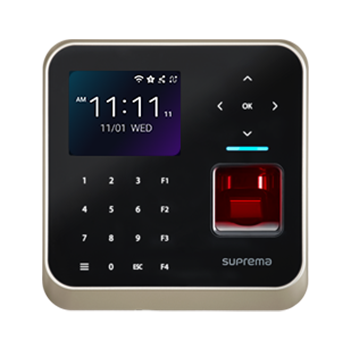- PRODUCTS
- Security Platform
- BioStar X | On-Prem SecurityNEW
- BioStar Air | Cloud Security
- BioStar 2
- Access Control
- Access Control Unit
- Biometric Readers
- RFID Readers
- Mobile Credential
- Peripherals
- Wireless Door Locks
- SOLUTIONS
- SUPPORT
- ABOUT
- device_hubHUB
Edge devices are commonly used in access control systems because it is easy to install, scalable and cost efficient.
In the context of access control, edge devices are located near the access points, such as doors or gates, to process authentication, manage access permissions, and make real-time decisions at the point of entry. Edge devices are preferred over traditional access control systems where the permanent presence of a person is required to grant access. Edge devices are cost-effective, easy to install anywhere, and can scale up based on the needs of the organization. Edge devices are widely used in various sites from small and medium-sized business to enterprises where real-time 24/7 access control service is essential.
However, edge devices are small, low-power, and low-cost, and as the adoption of AI (Artificial Intelligence) increases in the security industry, edge devices require more advanced hardware and software technologies to support the deployment of AI algorithms. Edge AI refers to the deployment of AI algorithms and the running of AI models directly on local edge devices. Therefore, it is crucial to optimize and streamline AI algorithm for implementation on edge device, due to their limited resources, such as memory, storage, and processing power. Running and training AI algorithms require vast datasets and high hardware specifications, as AI algorithms need to learn from large amounts of data and perform complex computations.

Feel the power of Suprema’s Edge AI, which runs NPU (Neural Processing Unit)-based AI algorithms on edge devices locally.

By integrating AI and edge computing, Suprema has developed high-performance edge AI devices. Suprema has adopted highly advanced AI processor, NPU. The NPU is designed to execute AI algorithms with higher efficiency and performance compared to traditional GPU (Graphics Processing Unit). The NPU can process AI workloads faster while consuming less power, making it ideal for applications in edge devices and the security industry where real-time processing is crucial. A standout feature of Suprema's edge AI technology is its ability to create lightweight AI engines capable of efficiently handling vast datasets while preventing overheating and slowdowns in hardware. Suprema's optimized data processing model, known as the quantization formula, plays a pivotal role in reducing both model size and operational quantity. This not only enhances model efficiency but also bolsters hardware performance. The fingerprint recognition solution, BioStation 2a, and facial authentication solution, BioStation 3 can run AI algorithm and process authentication locally.
What sets Suprema apart is its capability to develop deep learning-based AI algorithm for biometric recognition.

AI integration proves particularly advantageous in biometric-based access control systems, where it analyzes biometric data with higher precision. AI can identify distinctive patterns and features that might be difficult for traditional algorithms to discern, leading to improved recognition accuracy. Additionally, AI can incorporate feedback from past errors to improve its algorithms, leading to better overall performance. Leveraging over two decades of extensive experience in biometrics and access control industry, Suprema has capacity to train on vast datasets for deep learning. Suprema stands out for its technical superiority in offering the most accurate and fast biometric recognition performance through data-driven, deep learning-based AI algorithm.
Explore our Products













